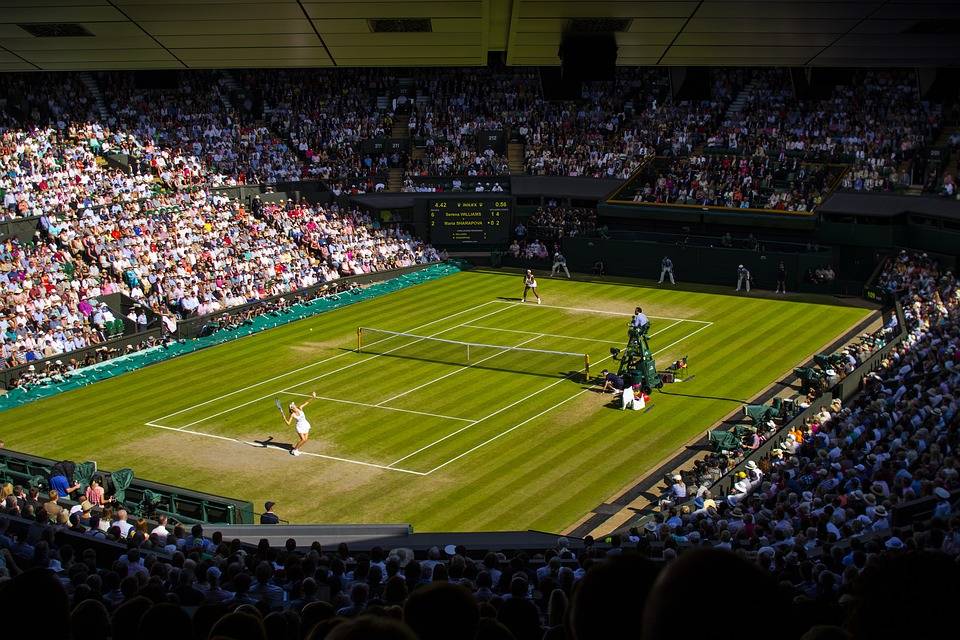1. Eliminating unforced errors can be as important as finding the elusive winners. Last year Nadal had seven unforced errors in his entire match against Andy Murray, which he won. Rafa made five in the first set alone in the final, which he lost. There are hundreds of potential unforced errors – turning up late, technical issues, distracting clothing/body language ‘noise’, incorrect assumptions about audience, content, outcomes, priorities, agendas etc. For politicians there are many others. Get rid of them.
2. One winner is better than one rescue. Playing winners cost less energy, less time and use less political capital than last ditch efforts scrambling around the court to save a point or the day. Plus they demoralise the opposition.
3. Being nimble on your feet. You need to be able to smell the room, change pace and sometimes direction. In the same way that playing a tennis match is different to knocking a ball against a non-agenda wall that simply knocks it back at you, a live audience is volatile and disobedient – their agenda is the rogue player in the room.
4. Position and place your shots. Focus on where your opponent is and where they are going. Your content should be honed and secure in your head. All your energy and focus should be on your delivery, the audience and how they are responding – refocusing and varying your delivery and your message if needed.
5. Attitude is king. In a different life and on a different continent I was a tennis coach. I was lucky to be coached as a coach by Ian Barclay, who coached Pat Cash. He said that a beginner needs 95 percent technical input and five percent attitude input from their coach while a pro needs five percent technical input and 95 percent attitude. People can smell a winner – and you will play up if you dress, look and feel like a winner. Be aware of where you are and get the coach that need – if you are a beginner get the technical skills coach – if you are more advanced – get the coach who can get your head in the right place.
6. Be the player – not the commentator. If you let commentators language and thoughts into your head (“If I pull this off…”, “My bonus on this will be huge..” etc), you WILL lose concentration. You may also lose your principles. Let others commentate – you play. As Petra Kvitova said after winning last year’s final: “focus on each point”.
7. The power is in how you start. Getting attention, being different, claiming the right to be heard, asserting authority and proving and reproving your credibility – these are the jobs of the first serve or your first return. Or the delivery and content of your first sentence. Or your first policy or planned legislation. Own the occasion or it will own you.
8. Get and maintain momentum. Part of this is eliminating distracting, energy sapping unforced errors. Part of this is having a plan of what you want to do and when. A plan that is divided into months and years, not just days and weeks. Political grids always have to react to the unforeseen – but a plan and a schedule for the big things you want to do will keep you moving.
9. Favourites don’t always win – commentators are fallible. Ignore them and concentrate on simply being better. Better in substance and better in delivery. Every point in every game. Every seat in every election. If Labourhadn’t dreamed and gone after the “impossible”, the so called safe seats, the Conservatives would stayed in power. Safe seats are often safe because they are not contested hard enough by good enough candidates and because “no-hoper” seats are too often seen as stepping stones. Iain Stewart proved in Milton Keynes that a different approach can work.
10. Practice, practice, practice After the men’s final last year, Djokovic’s coach said the result was due to “just hard work!!!” Skill is needed but work hones the skill.
11. Believe in yourself and in your message. Djokovic’s confidence last year came after winning in the Davis cup. This confidence boost was more important than doubling his technical skill. A small consultancy once hired me to “fix” the presentation skills of a new hire from one of the big consultancies. And at first she didn’t appear to be that good. But when she presented on a topic she believed in, she was transformed. Her problem was not her presenting skills. The problem was her lack of confidence in the claims this consultancy made.
12. Be likeable. Many former players are spectators at Wimbledon. But the popular personalities – Sue Barker, Boris Becker, John McEnroe – are the ones who are still working. Every presentation you make either adds to or detracts from your personal reputation – and may open other doors in the future.
13. Be true to yourself. Professional tennis players happily wear their sponsor’s logos. But they don’t let them become their advisors or their coaches. And they don’t let the brand of the sponsor overshadow their own brand.
14. Know your competition. Djokovic won last year because he neutralised Nadal’s best weapon – his forehand. Being different means knowing your competition and outplaying their strengths.
15. Pace or Positioning? Pace is important in baseline rallies and services. And it is lethal when your positioning is good. But it saps energy. Sometimes, positioning is all that you need. Just ask Panenka Pirlo!
16. Spin. Top spin, back spin, side spin are all important in tennis. Polishing your narrative and your delivery are important in politics and presentations – wouldn’t it be nice if spin wasn’t?
This was my column for The Commentator for this week.

